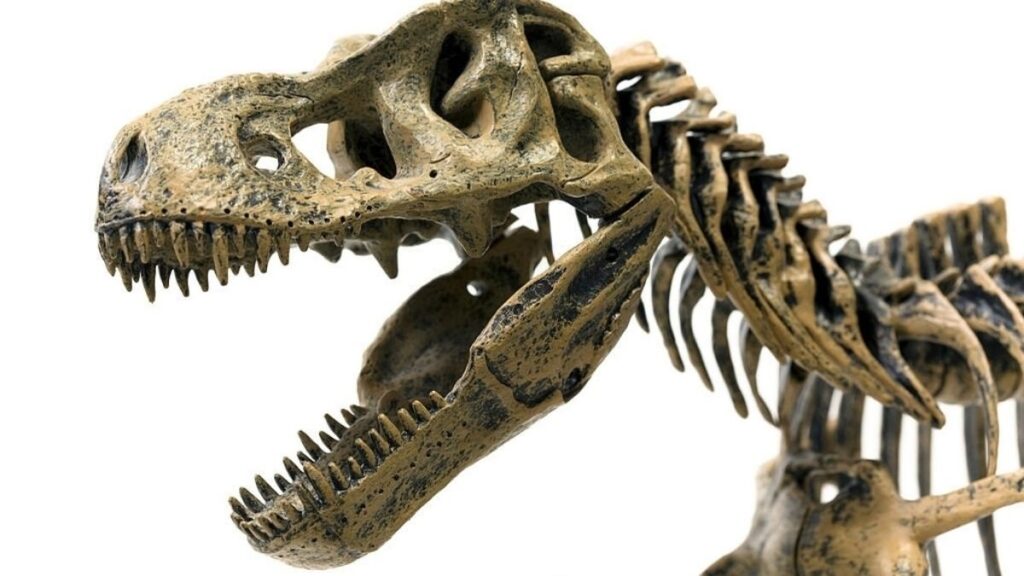If you decide to search for information about dinosaurs online, be sure to be aware of the consequences of your actions. Tech giants like Google, Amazon, and Microsoft have seen a huge increase in users as of late. This shift in the search engine industry has caused many ethical and moral questions to come up. One such question is whether or not searching for something that has been deemed inappropriate should be banned.
In an article published in The New Yorker Magazine, writer Adam Davidson discusses the ethics and morals of searching. In the article, Davidson poses the question about what should be done when it comes to searching for information on things that might have been achieved in unethical ways. Davidson points out that it is not always easy to answer this question, but provides some tips for navigating these ethical waters.
What is the ethics of searching?
When it comes to the ethics of searching, there is no easy answer. On one hand, Google has helped countless people find information they need. On the other hand, some people believe that by searching for information about dinosaurs, children are learning inaccurate information that could harm their beliefs about the animals.
It is important to remember that when you are using Google search, you are in control of the information you find. You can choose to read articles written by reputable sources or you can research information on your own.
How do you navigate whether or not to search something?
When you’re looking for information on the internet, it’s easy to get lost in the search engines. It can be tempting to just type in whatever you’re curious about and see what comes up.
However, this is not always the best way to navigate the ethics and morals of searching. Before you search something, you should consider whether or not it’s ethical or moral to do so.
Some things that are considered ethical and moral to search for include information about illegal activities or crimes. You should also be cautious about Searching for information that could potentially harm someone’s reputation or privacy.
Before you search anything, it’s important to think about the consequences of your actions. By using caution when navigating the ethics and morals of searching, you can avoid potential problems.
Is Google correct in their decision?
Google has come under fire recently for their decision to change their search algorithm to favor content from “authoritative” sources. This means that the site will give more weight to articles from sites like The New York Times and Reuters rather than sites like Buzzfeed and Vox.
Many people are upset with this change because it effectively prevents people from finding information that they might not agree with. Google is correct in their decision, however, because it’s in the interest of users.
If you want to find reliable information, you need to go to authoritative sources. These sources have been tested and verified by other people, which makes them more likely to be accurate. If you go to a source that isn’t considered an “authoritative” source, you’re likely to get inaccurate information.
So, while some people may be unhappy with Google’s change, it’s ultimately in the best interests of users.

Facts About Dinosaurs We Never Knew
Dinosaurs are one of the most popular subjects on the internet, with many people looking for information about them. However, not all of this information is accurate or trustworthy.
For example, you may have seen a Google search result that says “You shouldn’t Google what dinosaur has teeth.” This result is from an article that was published by The Daily Beast in January of this year. The article claims that dinosaurs didn’t have teeth and was based on a hoax created by a website called Dinosaur Den.
The article was shared widely on social media, leading many people to believe it was true. However, the article has since been debunked. In fact, research has shown that dinosaurs did have teeth and they varied in size and shape.
So, if you’re looking for information about dinosaurs, be careful to source it correctly. You don’t want to end up believing something you read on the internet that isn’t based on fact.
Criticisms of a Platform
When people search for information on the internet, they often turn to Google. However, there are some criticisms of this platform that people should be aware of.
One criticism of Google is that it allows users to access information about controversial topics without taking into account the possible consequences. For example, when people search for information about dinosaurs, they may find websites that suggest that dinosaurs had sharp teeth. This information may be inaccurate, but it can still be dangerous if people believe it.
Another criticism of Google is its lack of ethical policy. The company doesn’t have a clear policy on how user data is collected and used, which leaves users open to exploitation. For example, Google has been accused of using its power to promote its own products over those of its competitors.
Which dinosaur has 500 teeth? Shocking Right!!
As humans, we are constantly bombarded with information. From the headlines of our favorite news sites to the ads that we see on television, it’s hard not to be constantly inundated with information. It can be hard to filter out the accurate information from the inaccurate information.
One way that you can improve your understanding of information is to use sources that you trust. One of the most reliable sources of information is Wikipedia. Wikipedia is a source of accurate, unbiased information.
Wikipedia also has a “fact checking” feature which allows readers to check the accuracy of articles. If you find an article on Wikipedia that you don’t agree with, you can use the “comment” feature to provide your opinion.
However, there are times when you may want to search for information that is not available on Wikipedia. For example, if you are looking for information about a dinosaur that has 500 teeth, Google wouldn’t be a reliable source of information.
Searching for information on Google can be risky because Google is a source of inaccurate information as well. For example, Google may list dinosaurs that don’t actually have 500 teeth.
Also watch:
Tyrannosaurus Dinosaur has 500 Teeth?
Do you Google what dinosaur has teeth? If so, you may be surprised to learn that the Tyrannosaurus rex – the iconic carnivore often depicted with sharp, blade-like teeth – likely didn’t have any. In fact, T. rex probably only had around 250 teeth, according to a study published in the journal Scientific Reports.
Why is this relevant to your life? Because when you Google “dinosaur with teeth” or any other search containing scientific jargon, you might be led astray by unreliable information. That’s because some online sources – like Wikipedia – don’t always verify the accuracy of their information.
So how can you stay safe when looking up information on the internet? First and foremost, use reliable sources. These include websites like Smithsonian.com and The Christian Science Monitor, which are known for their accurate reporting. Additionally, look for references in the source material itself to verify its accuracy. And lastly, be skeptical of anything that seems too good to be true.
Spinosaurus Dinosaur has 500 Teeth?
Google has long been the go-to source for information on just about anything. From finding the answer to a school project to finding out who won the latest election, Google has been there for us. Unfortunately, this search engine can also be used to learn about things that we may not want to know.
Take, for example, the recent discovery of a new dinosaur species called Spinosaurus. This dinosaur had 500 teeth! While this may not seem like such a big deal, it is important to remember that Google is a search engine and not a history lesson.
Searching for information on Spinosaurus should be done with caution and with an understanding of the ethics and morals of searching. If you are looking for images or videos of this dinosaur, be sure to avoid websites that have inaccurate information.
Instead, try sites that provide accurate information about dinosaurs and their habitats. Sites like Dinosaur Database can help you find the right information without having to worry about accuracy or bias.
Triceratops Dinosaur has 500 Teeth?
Do you remember the scene from Jurassic Park where Dennis Nedry is looking for information on the Tyrannosaurus rex? He goes onto Google and finds out that the T-Rex has a whopping 506 teeth.
This scene is a great example of how dangerous it can be to search online for information. When you are searching for information, it is important to be aware of the ethical and moral implications of what you are doing.
There are a few things to keep in mind when you are searching online:
- Always be careful about what information you rely on online. It is important to research any information that you find online before you use it.
- Be aware of the consequences of your actions when you are searching online. What might seem like a harmless Google search could have serious consequences if you use the information that you find online wrongfully.
- Remember that not all information found on the internet is accurate or trustworthy. Do not trust everything that you find online without checking it first.
There are many types of the dinosaur but which dinosaur has 500 teeth ?
Google is a powerful tool that we use every day to find information, but it’s also a powerful tool that can be used to collect data about us. When you Google something, your search results are based on the information that Google has seen before. This means that if you Google “dinosaur with 500 teeth,” your search will return results that include information about dinosaurs with 500 teeth.
This raises important ethical and moral questions. For example, what happens if a dinosaur with 500 teeth shows up as one of the results of your search? Will you click on it? What do you think the implications of clicking on a result like this are?
Searching is an important part of our lives, but we need to be thoughtful about how we use Google and other search engines. We should consider the implications of our searches before we make them, and we should be aware of the privacy risks involved in using Google.



